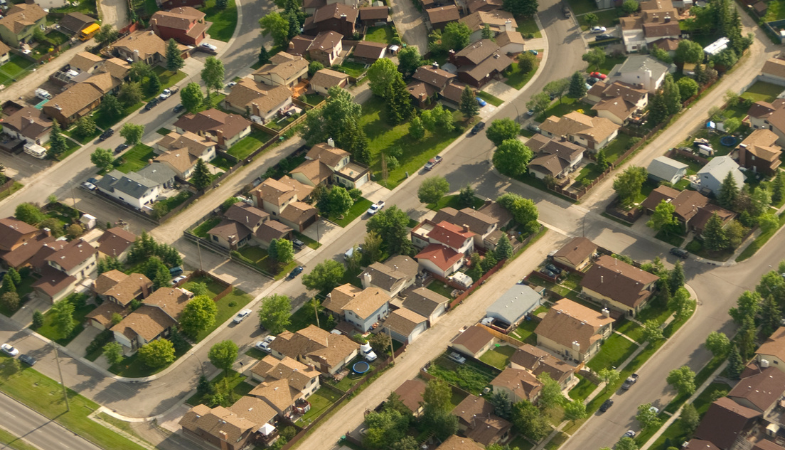
Like any housing market in Canada, Calgary real estate has navigated extreme changes in recent years due to the pandemic, economy and supply chain issues. While home prices peaked last year, interest rates remain high, making buying a home quite expensive. However, Calgary’s liveability, relative affordability compared to other parts of Canada, and diverse economy make it a desirable place to live. If you want to get into the Calgary housing market, here are a few things to consider in the next 10 years.
Inflation and Affordability in Calgary
Going into 2023, inflation is one issue at the forefront of everyone’s minds. It is getting increasingly difficult to afford even the necessities, never mind putting anything extra into savings to buy a house. Additionally, interest rates have skyrocketed, making a house even more out of reach. As a result, the amount of money people can save and borrow to finance their homes is taking a significant hit, which has slowed price growth and made it much harder for first-time homebuyers to qualify for a mortgage.
Although housing prices have cooled somewhat since their peak last year, the continuing high interest rates are making it harder to borrowers to pass the federal government’s mortgage stress test. The stress test requires borrowers to prove they can afford to make payments that are the higher of: a) two per cent above the contract rate, or b) the government benchmark of 5.25 per cent. This, in turn, could lead to changes in the types of homes built in Calgary, with some people turning to group ownership or smaller homes.
Supply and Demand in Calgary Real Estate
When it comes down to the basics, the prices of homes in Calgary and whether they rise or fall essentially comes down to how many are on the market at any given time and how many people want them. The recent rise in prices can be attributed to the high demand during the pandemic and several years of less-than-ideal housing stocks.
Unlike some other Canadian cities, Calgary has the advantage of adding more housing relatively easily because new construction is not restricted by physical or municipal barriers. So, more houses will be built to accommodate the high demand, but it will take a bit of time.
Building Costs and Supply Chain Issues in the Calgary Real Estate Market
As inflation has impacted Calgary residents trying to buy food and gas, rising costs have also affected real estate. Supply chain issues during the pandemic, combined with the high shipping and materials costs, have resulted in homes being built for far more money than they used to be.
In addition, homebuyers have been more focused on energy efficiency and environmentally friendly home materials. Although sustainable homes are good to strive for, they come at a price. Homebuyers either must come up with more money to buy a house the same size or use the same amount to buy a smaller home.
The Rise of Tech in Calgary
Calgary has been working for years to attract startups to the city, and their efforts have begun to pay off. They rose six points to number 28 on CBRE’s annual scoring of tech talent, indicating that they are reining in tech companies and workers. As a result, Calgary-based tech companies netted a record $322.2 million in funding.
Technology will also play a role in Calgary’s real estate scene in the coming years. The rise of e-commerce and new concepts like e-scooters have changed how people live in the city, making it more accessible for homebuyers in all areas of Calgary. Since residents are no longer forced to live near their workplaces and other frequented areas, Calgary will likely see a shift to previously less popular neighbourhoods due to being further removed from its central hubs.
How Working from Home Has Impacted Calgary Real Estate
Even before the pandemic, Calgary was beginning to face a problem with downtown office vacancies due to a shift in how work is conducted. During the pandemic, it shifted even more, and now many workers opt to keep a work-from-home job rather than find a job in an office. Working from home makes people more open to moving to the suburbs of Calgary or even into rural Alberta.
The flip side is that working from home requires more space in homes for offices, which could increase demand for larger homes in established communities. While some people are taking advantage of remote work to move to rural communities, most people are opting to remain in urban centres like Calgary to retain a sense of community or look to surrounding cities like Airdrie, Cochrane, and Okotoks for cheaper real estate.
As Calgary’s real estate market continues to evolve in the next ten years, residents can continue to adapt to changes in how they work and navigate the city. Building new forms of housing can help meet the needs of a diverse population and maintain affordability while adapting to changes in the city’s housing sector.